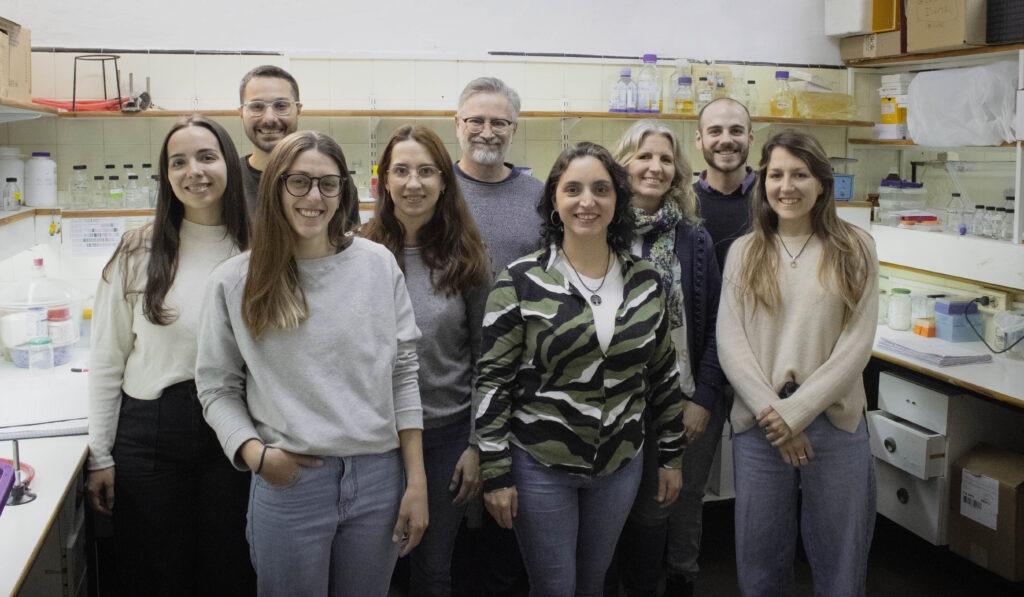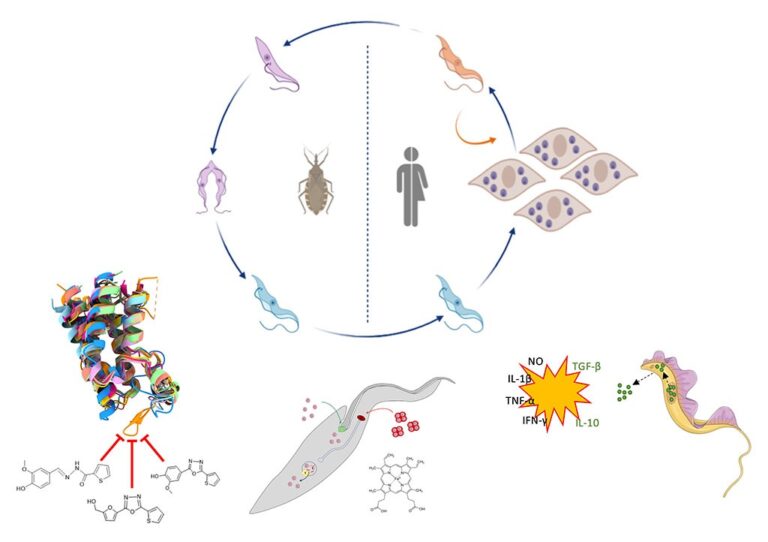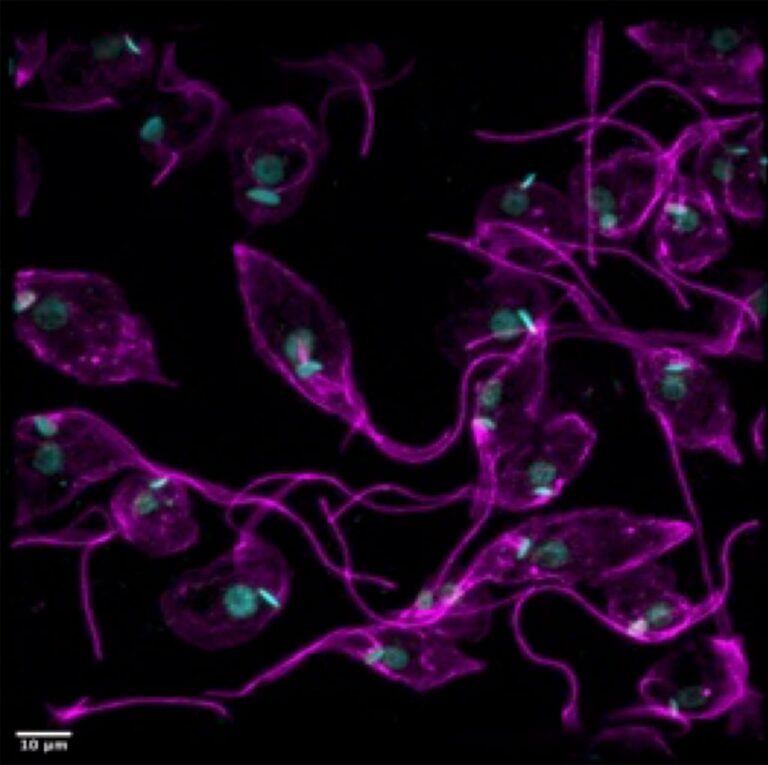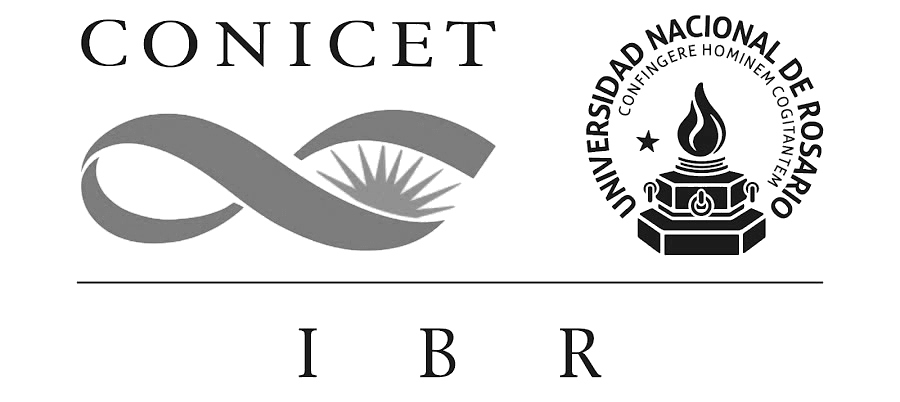research groups
Biology and Biochemistry of Trypanosoma Cruzi
summary

- Serra, Esteban Location: Facultad
Email: serra@ibr-conicet.gov.ar
- Cribb, Pamela Location: Facultad
Email: cribb@ibr-conicet.gov.ar
- Vernetti Tauil, Alma
RESEARCH LINES
Bromodomains and acetylated proteins in Trypanosoma cruzi
Protein acetylation is one of the most frequent post-transcriptional modifications in eukaryotic cells and bacteria. Although the molecular bases of its action are not fully understood, it has been established that acetylation modulates important cellular processes such as the modification of chromatin structure, transcription, cell cycle progression, regulation of energy metabolism and microtubules dynamics. In many cases, acetylation generates a site of interaction between proteins, through an acetylated lysine recognition motif called the bromodomain (BD). This domain is the only known structural motif with specificity to recognize and bind acetylated lysines and has been exclusively described in nuclear proteins. Trypanosoma cruzi has seven BD-containing proteins designated TcBDF1 through TcBDF7, two of which are non-nuclear.
The general objective of the research line is to study the existence of nuclear and extranuclear bromodomain proteins in T. cruzi that participate in the modulation of different cellular events mediated by acetylation as potential points of intervention in the biology of the parasite to develop new chemotherapy drugs. In particular, we are studying the role of these proteins and acetylation itself in DNA transcription and repair, in the dynamics of the cytoskeleton, and during the infection and differentiation process.
The High Mobility Group B protein of Trypanosoma cruzi: a multifunctional component in the parasite-host interaction in Chagas disease
High mobility group B proteins (HMGB) participate in the control of nuclear processes due to their ability to modify the structure of chromatin. Additionally, HMGB1 is released by damaged cells or actively secreted in response to a danger signal, thus acting as an “alarmin” to alert the immune system. T. cruzi HMGB (TcHMGB) is expressed throughout the parasite’s life cycle, varying in accordance with changes in chromatin structure and replication and transcription rates. Its overexpression affects the parasite’s growth and infectivity. We hypothesize that TcHMGB contributes to the establishment of “relaxed” chromatin regions increasing DNA accessibility and thus regulating DNA transcription, replication, or repair. We also observed that TcHMGB can induce the production of inflammatory mediators like its human ortholog, and it can be secreted by the different stages of the parasite. TcHMGB is thus probably playing a role in immunity against T. cruzi infection. Our aim is to study the roles of TcHMGB, both in the regulation of nuclear functions and in regard to its interaction with the immune system of the vertebrate host.
Images of our research lines


PUBLICATIONS AND PATENTS
Essential Bromodomain TcBDF2 as a Drug Target against Chagas Disease.
Essential Bromodomain TcBDF2 as a Drug Target against Chagas Disease.
Alpha-Tubulin Acetylation in Trypanosoma cruzi: A Dynamic Instability of Microtubules Is Required for Replication and Cell Cycle Progression.
Alpha-Tubulin Acetylation in Trypanosoma cruzi: A Dynamic Instability of Microtubules Is Required for Replication and Cell Cycle Progression.
A new model for Trypanosoma cruzi heme homeostasis depends on modulation of TcHTE protein expression.
A new model for Trypanosoma cruzi heme homeostasis depends on modulation of TcHTE protein expression.
Overexpression of Trypanosoma cruzi High Mobility Group B protein (TcHMGB) alters the nuclear structure, impairs cytokinesis and reduces the parasite infectivity.
Overexpression of Trypanosoma cruzi High Mobility Group B protein (TcHMGB) alters the nuclear structure, impairs cytokinesis and reduces the parasite infectivity.
Discovery of a Biologically Active Bromodomain Inhibitor by Target-Directed Dynamic Combinatorial Chemistry.
Discovery of a Biologically Active Bromodomain Inhibitor by Target-Directed Dynamic Combinatorial Chemistry.
Sede CCT Rosario
Ocampo y Esmeralda, Predio CONICET-Rosario
2000 Rosario, Santa Fe, Argentina
Tel. 54-341-4237070 / 4237500 / 4237200
Sede Facultad de Ciencias Bioquímicas y Farmacéuticas
Universidad Nacional de Rosario - Suipacha 531
2000 Rosario, Santa Fe, Argentina
Tel. +54 341 4350596 / 4350661 / 4351235
🔬 El IBR suma 9 proyectos seleccionados en Investigación Orientada 2025 de @ProduccionSF y @CienciaSantaFe.
Biotecnología, salud y sostenibilidad para fortalecer el vínculo entre ciencia, innovación y desarrollo territorial.

